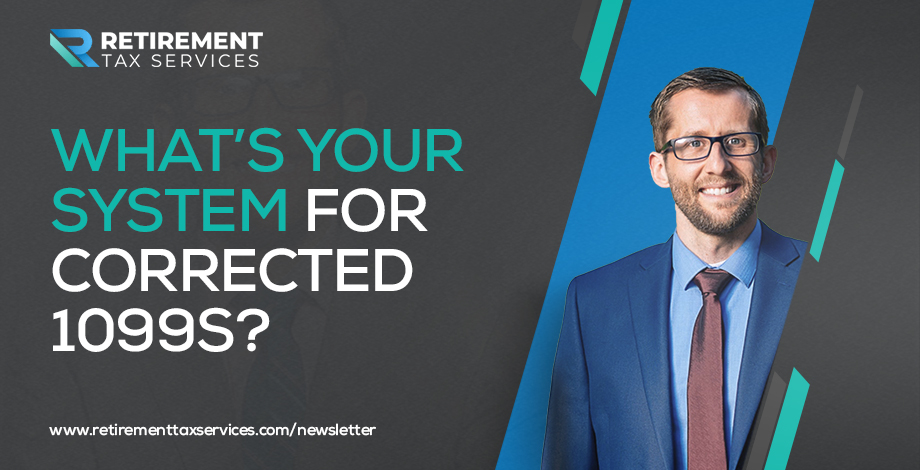
What’s your system for corrected 1099s?
1099s are unhelpful enough as is; what makes tax season even harder for your clients is when custodians issue corrected 1099s (which Schwab has already done for 2024). The client will get notified of the updated 1099, but that doesn’t mean they know what to do about it. The timing of correction could create multiple scenarios the client has to navigate:
- The client hasn’t started their 2024 tax return: this is certainly the most straightforward. They simply use the corrected 1099 instead of the original 1099, and they are off to the races.
- The client has started but not completed their 2024 tax return: awareness becomes the most critical piece in this situation. The client needs to know that an update is required, which is a great opportunity for you as the advisor to step in with proactive communication. Especially if the client is working with a tax pro, they may not be on the lookout for a second round of tax documents; you can be their tax season hero by making the update easy.
- The client has already filed their 2024 tax return: It’s already the first week of March; there are definitely taxpayers who think they’ve closed the book on last year, and a corrected 1099 is going to come as a shock. The question that will inevitably come up is, “Should I amend my tax return?” If you aren’t a CPA or EA, you should be very cautious with how you approach recommendations on what to do with the corrected 1099.
You can absolutely help them understand what changed (was it a $10 adjustment to total dividends? Was it purely classification that doesn’t impact the tax return?) and provide them with a summary they can pass onto their tax preparer. The great news is that the IRS does have de minimis rules, and not every minor change requires an amendment.
While you may not think this falls under your responsibility, if not you, then who? If you don’t help your clients realize and react to a corrected 1099, one possible outcome is an IRS mismatch letter later in the year that comes as a surprise (a most unwelcome surprise) and creates a bad experience for the client. You don’t need to drop everything and have your staff on full alert; you just need a simple process to check for corrected 1099s and notify impacted clients so they can have a proactive conversation with their tax professional.
Remember, the tax pro in your client’s life has no way to know a 1099 has been corrected unless your client tells them. Which usually translates to the tax pro won’t know unless you tell the client to tell them. Choose intentionally.
Happy Tax Planning!
P.S. Hit the ground running after the filing season and deliver massive value through tax planning. Sign up for our next CE-eligible webinar on May 7th for an hour of what really works in practice when it comes to getting client tax returns and finding ways to add value.